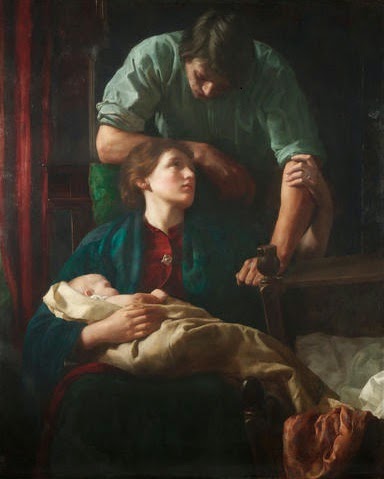I got a few responses, which seemed to boil down to the idea that we are better off today, thanks to the free market, because we get to choose what we do more than previous generations did:
You and I have far, far more liberty than any previous generation in human history. That means we have vastly more power to choose our path than they did.
I want to thank those who did write in; however, I mostly can't accept the argument, for the following reasons.
First, I don't think that freedom should be defined as the ability to choose our own path. If that becomes the accepted definition then much else follows.
First, it means that our sex, our race and our sexuality will be thought of as having no proper bearing on our life path. If I am free because I can choose my own life path, then why should my sex stop me from choosing to do something? Why shouldn't a woman be able to choose to be a combat soldier? And if I choose to follow my rational self-interest and migrate to a country with a higher standard of living, then why should I be prevented from doing so on the basis of my nationality, ethny or race? And what if I am homosexual? Why should I not be able to choose to marry, if freedom means choosing my own life path? In fact, if freedom is choosing my life path, then why should I not be free to choose whether to be a man or a woman (this once would have been considered an absurd argument, but we are now seeing the whole transsexual issue become prominent in society).
Second, if freedom means being able to choose our own life path, then the proper focus of life will be thought to be those things that we can choose as individuals. That, perhaps, partly explains the big focus on market freedoms. We do get to choose as individuals what career we have, what we buy and sell and what investments we make. It fits within what is permissible within the liberal concept of freedom. What doesn't fit so well are those aspects of life with a communal dimension or that involve stable relationships with others. For instance, my inherited national identity might be important to me, but there is no defence for it when freedom is defined as a self-chosen life path.
Third, the focus of modern society in expanding the freedom to choose our own path hasn't created a higher level of this freedom. What, for instance, if the path you want to choose is to marry in your early 20s and to enjoy a stable, lifelong marriage? The fact is that you had a better chance of being able to choose this 60 years ago compared to today. What if you would like to support a family on your own wage, to save money and to quickly pay off a house and to put your children through private schooling? Again, you had a much better chance of choosing this 40 years ago compared to today (when housing is so expensive and the male wage is stagnant). What if the life you want is one in which men are respected, in which moral standards are encouraged, in which a European civilisation is highly regarded and admired, and in which the fine arts are flourishing? Again, we were born too late for this. Yes, we can go to a food court and choose 20 varieties of food. You couldn't do this a generation ago. But is it really a good trade off? I don't think so.






